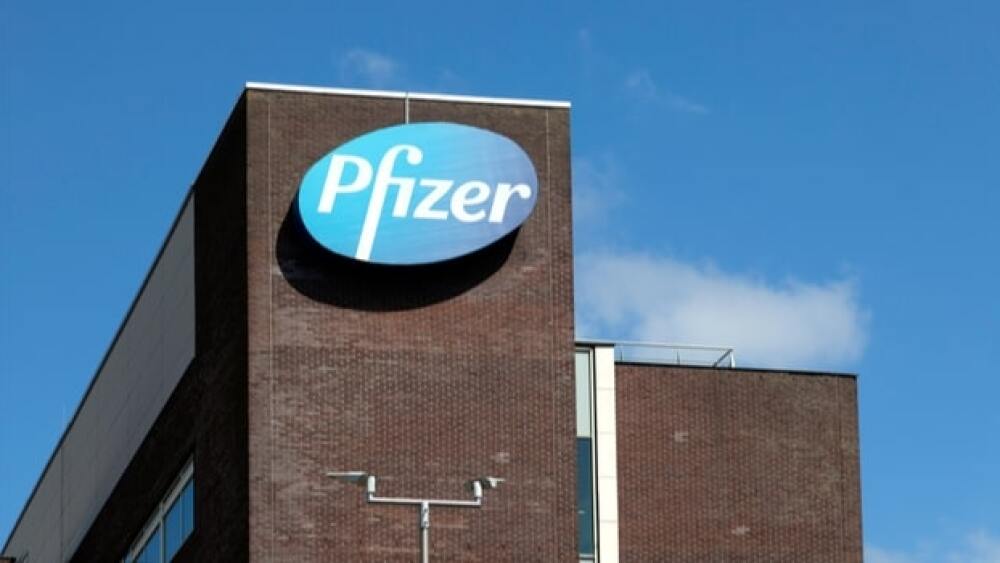Pfizer is one step closer to receiving approval for its 20-valent pneumococcal conjugate vaccine (20vPnC) candidate after the Food and Drug Administration (FDA) on Wednesday granted priority review of a Biologics License Application (BLA) for the invasive disease and pneumonia vaccine.
Repelsteeltje/Shutterstock
Pfizer is one step closer to receiving approval for its 20-valent pneumococcal conjugate vaccine (20vPnC) candidate after the Food and Drug Administration (FDA) on Wednesday granted priority review of a Biologics License Application (BLA) for the invasive disease and pneumonia vaccine.
The investigational 20vPnC candidate was designed by Pfizer to prevent invasive disease and pneumonia caused by Streptococcus pneumoniae serotypes in adults. The vaccine includes capsular polysaccharide conjugates for the 13 serotypes already included in Prevnar 13® (Pneumococcal 13-valent Conjugate Vaccine[Diphtheria CRM197 Protein]). The 20 serotypes in 20vPnC are responsible for most of the currently circulating pneumococcal disease in the U.S. as well as across the globe.
Approval of the vaccine would be welcomed news for healthcare providers, as pneumococcal pneumonia causes hundreds of thousands of deaths and millions of episodes in adults aged 70 and older per year globally.
“The FDA’s acceptance of our application for 20vPnC is yet another significant milestone in Pfizer’s continuing efforts to help protect adults against pneumococcal disease,” according to a statement made by Kathrin U. Jansen, Ph.D., Pfizer’s Senior Vice President and Head of Vaccine Research and Development. “If approved, 20vPnC will cover more serotypes responsible for the majority of pneumococcal disease than any other pneumococcal conjugate vaccine currently licensed or currently in late-stage clinical development. Importantly, 20vPnC has shown to induce immune memory, which provides protection and efficacy against non-bacteremic pneumonia, particularly in older adults.”
The regulatory submission for 20vPnC includes data from Pfizer’s clinical program in adults, including Phase I and II trials studies as well as three Phase III trials (NCT03760146, NCT03828617, and NCT03835975). Data from these trials describe the safety and immunogenicity of the vaccine candidate, which the company hopes will support licensure for an indication for prevention of invasive disease and pneumococcal pneumonia caused by Streptococcus pneumoniae serotypes in adults aged 18 years or older.
To date, Pfizer’s three Phase III trials have recruited over 6,000 adults. The study cohorts also include several adults over the age of 65, a particularly vulnerable patient population. In addition, these studies included vaccine-naïve adults as well as adults who had received pneumococcal vaccination prior to entry. Earlier this year, Pfizer said its Phase III study of 20vPnC achieved the primary immunogenicity objectives of non-inferiority for the 20 serotypes in adults 60 years and older at one month after vaccination. The company also noted that the vaccine was comparable to other licensed pneumococcal vaccines on the market.
Pfizer has been on a lengthy trajectory toward full approval of the vaccine. In September 2018, the FDA granted Breakthrough Therapy Designation for 20vPnC for preventing invasive disease and pneumonia associated with Streptococcus pneumoniae serotypes in adults. Previously, the FDA also granted the vaccine candidate Fast Track designation. Also, the agency granted Breakthrough Therapy Designation for 20vPn for a pediatric indication.
But Pfizer isn’t the only pharmaceutical making headway in the fight against pneumococcal disease. In September 2020, Merck announced positive safety, tolerability and immunogenicity results of the company’s investigational 15-valent pneumococcal conjugate vaccine candidate, V114, in two Phase III studies. In one study, the vaccine was non-inferior to Pfizer’s PCV13, the existing 13-valent pneumococcal conjugate vaccine, in regard to the 13 serotypes targeted by both vaccines. In addition, Merck’s vaccine was superior for serotypes 22F and 33F, both of which are not targeted by PCV13.





